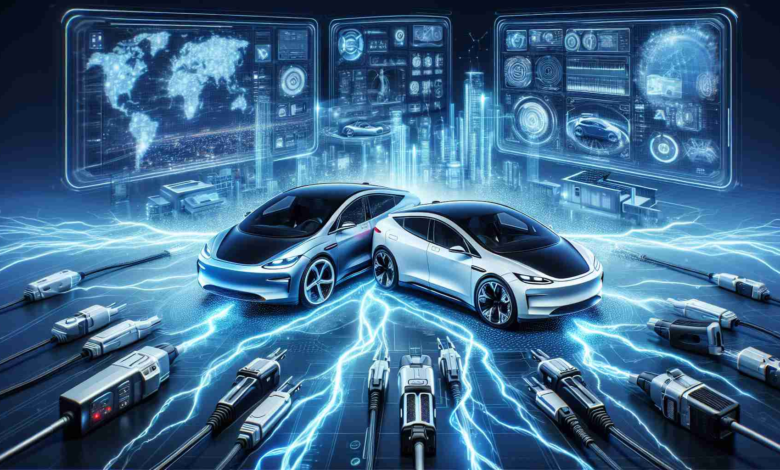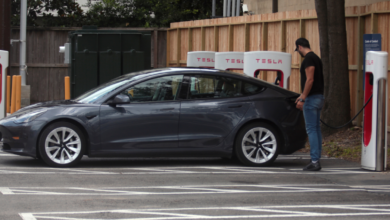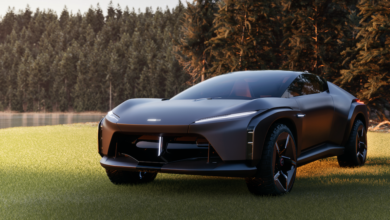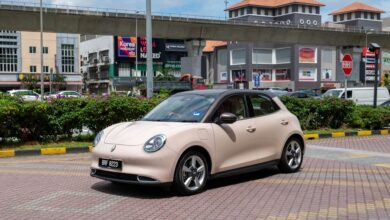Log9 and Zeta Energy Forge a Strategic Alliance

Summary: The electric vehicle (EV) market is about to witness a game-changing advancement as Log9 Materials collaborates with Zeta Energy Corp to enhance battery technology. This partnership is expected to yield EVs with longer ranges and more stability at a lower cost, particularly addressing the Indian market’s reliance on imported lithium-ion cells.
Combining forces in the realm of electric vehicle technology, Log9 Materials and Zeta Energy Corp have initiated a strategic alliance that promises to redefine the future of EV battery systems. This collaboration was revealed at Log9’s renowned Day Zero event on April 21st, marking a significant milestone in battery technology progression.
Log9’s innovation in battery cell technology is set to synergize with Zeta Energy’s expertise in lithium-sulfur (Li-S) batteries. The latter’s groundbreaking advancements stand to give Log9’s EV designs a competitive edge, as they eye extending vehicle range, enhancing stability, and ensuring affordability—key factors that would significantly elevate the Indian EV landscape.
The crux of this association hinges on Zeta Energy’s revolutionary lithium-sulfur technology, which exploits sulfur’s high energy density. Sulfur, as a readily available and inexpensive element, mitigates the risks attached to traditional lithium-ion batteries. Zeta’s cutting-edge work includes an innovative material that thwarts the notorious “polysulfide shuttle” effect, historically obstructing sulfur-based battery enhancements.
The collaboration is projected to yield vital insights into the performance enhancement of lithium-sulfur batteries. Such advancements are timely, considering the exponential growth of electrification demands. This partnership is more than a strategic business move; it embodies the progressive steps taken towards creating sustainable and efficient energy storage, which is indispensable for the EV sector and the global energy infrastructure.
Industry and Market Prospects
The burgeoning EV market continues to gain momentum, with projections placing it on a substantial growth path featuring a compound annual growth rate (CAGR) of approximately 22.6% from 2020 to 2027. Despite the positive outlook, obstacles such as range limitation, sizeable initial investments, and the development of a robust charging network pose significant hurdles.
Log9 and Zeta Energy’s joint venture intends to confront these issues, propelling a battery solution with the potential to alleviate energy density concerns, decrease costs, and minimize dependence on scarce and controversial materials like cobalt and lithium.
As the EV industry evolves, the union of Log9’s and Zeta Energy’s pioneering spirits stands as a testament to human ingenuity and dedication to eco-friendly transportation solutions, steering the world toward a cleaner and more efficient mobility future.
The global electric vehicle industry is poised for remarkable growth over the coming years. Analysts project the EV market size to reach significant heights, driven by factors such as technological advancements, supportive government policies, and increasing environmental awareness.
One of the primary drivers of the EV industry’s growth is the evolution of battery technology, which directly affects vehicle range, charging time, and cost. The collaboration between Log9 Materials and Zeta Energy Corp is particularly relevant here, as they strive to address these critical aspects with their innovative lithium-sulfur battery technology.
Current forecasts suggest that the Asia-Pacific region will likely dominate the electric vehicle market owing to rising environmental concerns, increasing adoption of electric vehicles, and initiatives by governments in this region to promote EVs. India, as part of this strategic geography, is expected to significantly benefit from Log9 and Zeta Energy’s joint endeavor, as it aligns with the country’s push towards electrification and reducing dependency on imported fossil fuels.
Industry Issues & Challenges
While the electric vehicle sector promises a greener future, it is not without its trials. Production costs, charging infrastructure, technology acceptance, and supply chain resilience are key areas that industry actors are constantly addressing.
Securing materials for batteries, particularly those that are rare or have geopolitical constraints, continues to be a contentious issue. This has shifted focus to alternative technologies that offer better sustainability. The partnership’s focus on lithium-sulfur batteries is significant, as it moves away from the traditional lithium-ion paradigm that relies on materials like cobalt and lithium, which are not only costly but also present ethical and sourcing concerns.
There’s also the challenge of EV batteries’ end-of-life impact. The need for effective recycling and reuse strategies is paramount to prevent a secondary environmental crisis arising from battery disposal.
Conclusion
The amalgamation of Log9’s cell technology acumen with Zeta Energy’s advanced lithium-sulfur battery expertise could signal a quantum leap in addressing electric vehicle market’s existing bottlenecks. The success of this collaboration may lead the industry away from contemporary lithium-ion technologies to more sustainable, efficient, and cost-effective battery solutions, directly reflecting on the global initiative for a cleaner environment and sustainable economy.
For additional insights into the global electric vehicle market and ongoing industry developments, readers might consider visiting reputable information sources like International Energy Agency or Bloomberg New Energy Finance for data and analysis.
The future prospect of electric vehicles is not just predicated on technological innovation but also societal changes, policy frameworks, and economic viability. The strategic partnership of Log9 and Zeta Energy could potentially address both the technological and market challenges, ushering in a new era for electric vehicles, particularly in emerging markets like India.

Iwona Majkowska is a prominent figure in the tech industry, renowned for her expertise in new technologies, artificial intelligence, and solid-state batteries. Her work, often at the forefront of innovation, provides critical insights into the development and application of cutting-edge AI solutions and the evolution of energy storage technologies. Majkowska’s contributions are pivotal in shaping the future of sustainable energy and intelligent systems, making her a respected voice in both academic and industrial circles. Her articles and research papers are a valuable resource for professionals and enthusiasts alike, seeking to understand the impact and potential of these transformative technologies.



